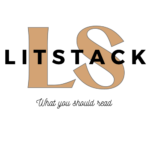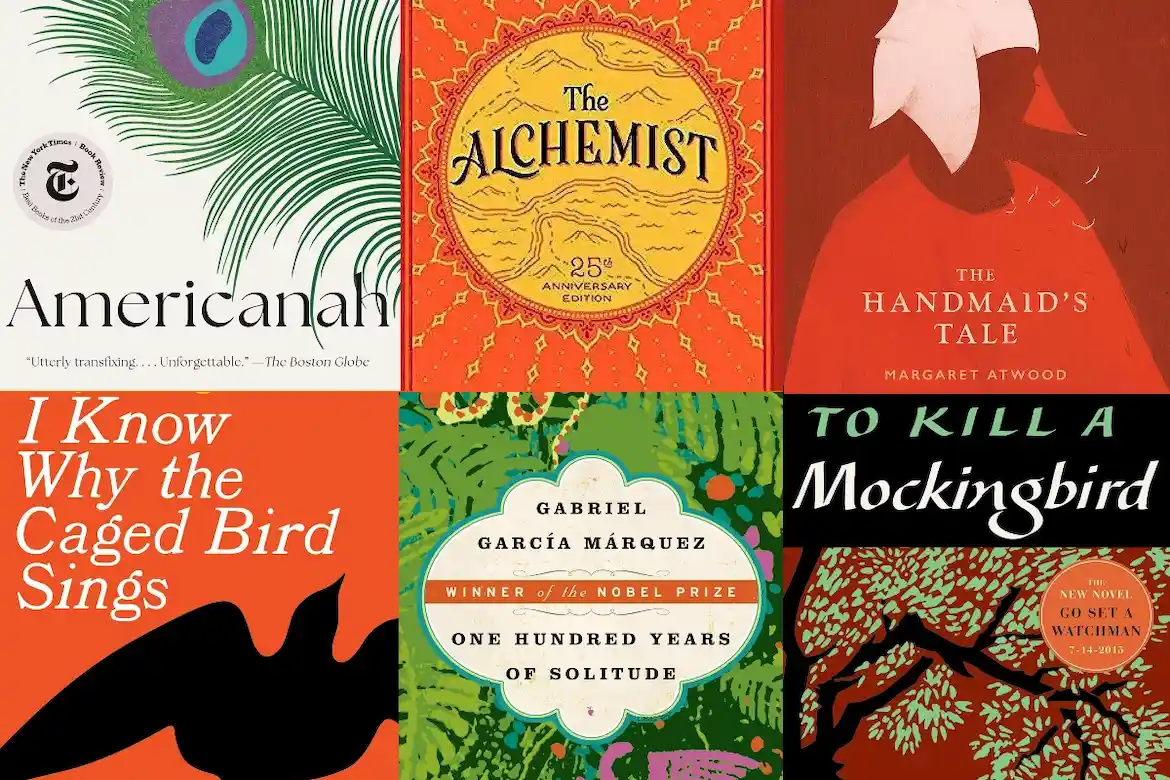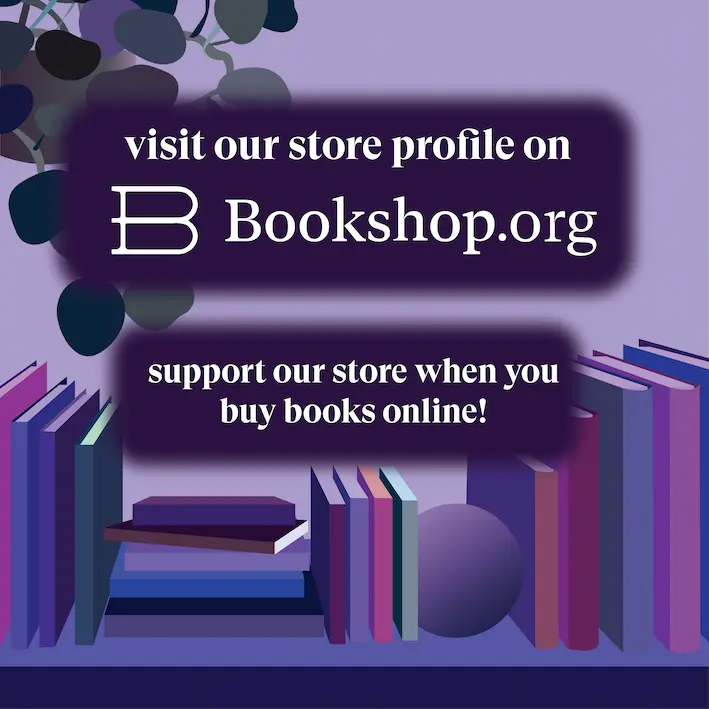The power of novels, the power of reading, seems immeasurable. The books we read and love are books that expand our consciousness and let us understand something new about our world. Here are 6 novels that spark creativity and transformation. Enjoy!
You can find and buy the books we recommend at LitStack Bookshop.

In This LitStack Rec of 6 Novels That Spark Creativity
Explore Vast Landscapes of Imagination
In the hushed sanctuary of a library, where sunlight dapples through stained glass like whispers of forgotten tales, lies the transformative power of reading—a magic carpet woven from ink and imagination. Each book, an uncharted world waiting to be discovered, holds the potential to spark creativity and inspire change in ways we can scarcely fathom. Imagine turning the pages of Gabriel García Márquez’s “One Hundred Years of Solitude,” feeling the humid breeze of Macondo on your skin, or losing yourself in the dystopian realms of Margaret Atwood’s “The Handmaid’s Tale,” as its haunting echoes challenge your perceptions of reality. These literary landscapes don’t just entertain; they mold minds and shift paradigms.
Books are alchemists of the soul, capable of turning the leaden routines of daily life into golden opportunities for growth. With each chapter, they beckon us to embark on journeys where our minds dance with wonder and our hearts beat in time with the characters we come to love or loathe. The very act of reading—eyes tracing lines like a river carving its path through stone—can awaken dormant creativity, inviting us to see the world anew. Books are not mere collections of words; they are catalysts for transformation, urging us to explore the vast landscapes of our own potential. So, dear reader, ready your heart and let these stories illuminate your journey.
The Magic of Storytelling
Imagine turning the first page of a novel and being swept away to an ancient city, where the scent of incense mingles with the whispers of bustling markets. The transformative power of reading lies in its ability to teleport us across time and space, immersing us in cultures as varied as the colors in a painter’s palette. Through the deft strokes of an author’s pen, we find ourselves living lives beyond our own, tasting the salty air of a distant ocean or feeling the chill of a desert night. Such is the alchemy of storytelling that it transcends mere words on paper, morphing into experiences that linger long after the book is closed.
As readers wander through these narrative landscapes, they form profound emotional connections with characters whose joys and sorrows echo their own. It is within these pages that we meet kindred spirits—characters who laugh with us, cry with us, and teach us about resilience and vulnerability. In Harper Lee’s “To Kill a Mockingbird,” for instance, readers find themselves in the shoes of a 12 year old girl walking alongside Atticus Finch, her father, learning lessons of racism, justice and empathy that resonate deeply within our hearts. These emotional bonds are not confined to fiction alone; memoirs and biographies open windows into the souls of real people, allowing readers to live vicariously through their triumphs and tribulations.
Storytelling does more than entertain; it cultivates empathy by allowing us to see the world through another’s eyes. As we immerse ourselves in stories from diverse authors’ stories, we come to appreciate the tapestry of human experience. When we read Chimamanda Ngozi Adichie’s “Americanah,” we’re invited into the complexities of identity and migration, prompting reflections on our own perceptions and prejudices. Such narratives challenge us to question our assumptions and embrace a broader understanding of humanity. This newfound empathy extends beyond the pages, influencing how we interact with the world around us—an enduring testament to the transformative power of reading.
One Hundred Years of Solitude by Gabriel Garcia Marquez


Inspiration from Authors
The world of literature is replete with tales of authors whose lives were irrevocably altered by the books they read. Take, for instance, the illustrious Maya Angelou, who found her voice in literature after a traumatic childhood experience left her mute for years. The poetry of Edgar Allan Poe and William Shakespeare served as her silent companions, nurturing her soul until she could once again articulate her thoughts. Angelou’s journey through words became a beacon of personal growth through books, illuminating paths for countless readers seeking solace and strength in their own narratives.
Authors often weave the threads of their own life experiences into the tapestry of their stories, crafting narratives that resonate deeply with readers. The experiences of Maya Angelou, who penned “I Know Why the Caged Bird Sings” infused her writing with themes of resilience and self-discovery. The powerful passages where Marguerite finds her voice and strength in seemingly insurmountable situations mirror Angelou’s triumph over her own challenges, offering readers not just a story, but a testament to the enduring power of the human spirit.
The creative process of writing is often a symbiotic dance between the author’s imagination and the literature they’ve absorbed. Haruki Murakami, known for his surreal and dreamlike storytelling, credits his unique narrative style to a lifetime steeped in reading diverse genres. From Western classics to Japanese literature, Murakami’s eclectic library inspired him to blend reality with fantasy in a way that feels both familiar and otherworldly. Through his work, readers are invited to explore alternate realities, expanding their own creative thinking as they journey alongside his characters.
Authors are both creators and conduits—channels through which stories flow, shaped by the books that once touched their lives. As they share their tales with the world, they ignite sparks of creativity in others, fostering a perpetual cycle of inspiration and transformation. Each book becomes a stepping stone on the path of personal growth, guiding readers toward a deeper understanding of themselves and the world around them.
I Know Why The Caged Bird Sings by Maya Angelou


Readers’ Perspectives
In the quiet alcoves of libraries and the cozy corners of cafes, stories unfold not just on pages but within the minds of readers. There’s a certain alchemy to the transformative power of reading—a magic that turns ink and paper into catalysts for change. Consider Emma, who found her world pivoting on the axis of a single book: “The Alchemist” by Paulo Coelho. For her, each sentence was a whisper urging her to pursue her dreams, ultimately leading her to leave a stifling career and travel the world. It was as if the book had handed her a key to unlock the courage she didn’t know she possessed, illustrating how a single passage can sculpt life-altering decisions.
Books not only transform individuals but also weave threads that connect people in unexpected ways. When readers share these metamorphic experiences, they create ripples that extend beyond personal growth into community enrichment. Take a small town in Maine, where an informal book club blossomed into a vibrant community movement after members read “Educated” by Tara Westover. This memoir, detailing one woman’s journey from isolation to academia, sparked discussions about education access and inspired local initiatives to support adult learning programs. Through this shared literary voyage, perspective shifts became collective actions, showcasing the profound community impact when stories are shared.
The tales of transformation are as varied as the readers themselves. In bustling cities and sleepy towns alike, book recommendations pass like sacred torches illuminating paths of empathy and understanding. James Baldwin’s “The Fire Next Time” ignited such a flame for Marcus, who once saw the world through a narrow lens. The book opened his eyes to racial injustices he had never considered, prompting him to engage in social activism and dialogue within his community. These personal epiphanies ripple outward, nurturing a garden of empathy and awareness in the collective consciousness, and reminding us all of the boundless potential contained within the simple act of turning a page.
The Alchemist by Paulo Coelho


Books as Catalysts for Creativity
As one dips into the pages of a book, an alchemical reaction occurs, where the ink-stained leaves transform into seeds of imagination, sprouting ideas and visions within the reader’s mind. The act of reading becomes a dance between the author’s intent and the reader’s interpretation, sparking creativity that illuminates even the darkest corners of thought. Literature serves as a boundless playground where readers can build castles in the sky, crafting worlds as vivid and intricate as their own minds permit. This stimulation of imagination is not merely passive; it actively nurtures a creative mindset, encouraging readers to dream bigger and explore the uncharted territories of their own creativity.
The impact of literature on creativity is not confined to mere fantasy. It has been a muse for countless artists and innovators who have transformed their reading habits into revolutionary creations. Take, for instance, Steve Jobs, whose passion for reading Zen Buddhism texts influenced his design philosophy and approach to innovation at Apple. Similarly, filmmaker Guillermo del Toro draws inspiration from gothic literature and folklore, weaving fantastical stories that resonate with audiences worldwide. These visionaries demonstrate how literature can be a wellspring of inspiration, fueling creative endeavors across diverse fields.
Moreover, the educational benefits of reading in fostering creativity are profound and far-reaching. Engaging with diverse narratives enhances cognitive flexibility, enabling individuals to approach problems from multiple angles and develop unique solutions. This is particularly evident in educational settings where exposure to varied literary genres enriches students’ understanding and sparks curiosity. Programs that encourage reading habits in schools have shown to enhance students’ creative thinking abilities, allowing them to connect disparate ideas and innovate beyond conventional boundaries. Reading, therefore, becomes not just an academic exercise but a catalyst for lifelong creative exploration.
In essence, books serve as both mirrors and windows—reflecting our innermost thoughts while simultaneously offering glimpses into worlds beyond our own. They invite readers to partake in a symbiotic relationship where imagination fuels creativity, which in turn transforms reality. The transformative power of literature continues to inspire new generations of thinkers, dreamers, and creators who dare to envision the world not as it is, but as it could be.
Americanah by Chimamanda Ngozi Adichie


Educational Impact of Reading
In the grand tapestry of lifelong learning, books are the vibrant threads that weave knowledge and curiosity into the fabric of our minds. Each page turned is a step into the boundless realm of discovery, where the imagination dances alongside facts and theories. Whether it’s the structured elegance of a textbook or the lyrical prose of literary fiction, reading sharpens our intellect and broadens our horizons. It is through this kaleidoscope of words that we embark on journeys of understanding, delving deeper into subjects that intrigue us and challenge our perceptions.
Books serve as the cornerstone of academic success, laying the foundation for critical thinking and intellectual growth. Like a mentor whispering wisdom through the ages, they offer insights that transcend the boundaries of time and space. When students immerse themselves in literature, they hone skills essential for academic achievement—comprehension, analysis, and synthesis. Consider how “To Kill a Mockingbird” by Harper Lee not only enriches vocabulary but also cultivates empathy, inviting readers to grapple with complex social issues. Such texts ignite curiosity, urging students to question, explore, and ultimately expand their knowledge.
The educational impact of reading extends beyond individual success; it echoes through communities via initiatives and programs designed to promote literacy and engagement. Programs such as “Reading is Fundamental” and the “Little Free Library” movement strive to put books into the hands of children and adults alike, fostering environments where reading is both accessible and celebrated. These initiatives underscore the belief that books are not mere objects but gateways to empowerment, equipping learners with the tools to navigate and contribute to an ever-evolving world.
As educators, policymakers, and book enthusiasts rally behind the transformative power of reading, they nurture a culture where learning becomes a lifelong pursuit rather than a destination. By championing initiatives that promote literacy and accessibility, they ensure that the magic of books continues to inspire creativity and foster an enduring thirst for knowledge across generations.
To Kill a Mockingbird by Harper Lee


Building Literary Communities
In the hushed corners of cozy cafes and under the flickering glow of living room lamps, book clubs and reading groups ignite like constellations scattered across the night sky. These gatherings, both intimate and grand, weave a tapestry of shared stories and collective imagination. Here, the transformative power of reading unfurls its wings, allowing individuals to soar beyond the bounds of solitary reflection into the realm of communal enlightenment. In these circles, books become bridges, connecting disparate souls through the vibrant thread of narrative. Whether dissecting a classic like “Pride and Prejudice” or diving into the dystopian worlds of “The Handmaid’s Tale,” these groups foster bonds that transcend the pages, creating friendships that echo with laughter and understanding.
Shared reading experiences are akin to a symphony, each member contributing their unique perspective to create a harmonious blend of insights and emotions. As one reader might feel the heartbreak in a poignant passage, another might find hope where none seemed possible. This exchange of interpretations enriches not just the individual but the entire group, weaving a complex tapestry of empathy and insight. Such exchanges are not merely discussions; they are dialogues that breathe life into literature, transforming words into catalysts for change. For many, it is within these conversations that personal revelations occur, sometimes guiding life decisions or opening new avenues of thought.
Literary festivals and events, such as the Hay Festival in Wales and the Jaipur Literature Festival in India, celebrate the love of books by bringing together diverse communities through panels, readings, and workshops. These gatherings showcase literature’s ability to inspire and transform, encouraging readers to explore their favorite genres while discovering new voices. The atmosphere is charged with the possibility of connection, highlighting that the power of reading is enhanced by sharing it with others who share the same passion.
These literary gatherings, whether small or large, encapsulate the heart of community—a place where ideas are exchanged, cultures are explored, and minds are opened. As readers come together to discuss and celebrate literature, they strengthen the bonds of community and foster an environment ripe for creativity and transformation. Through these shared experiences, individuals find themselves not only shaped by the narratives they consume but also by the collective wisdom and camaraderie of their fellow readers. In this way, books continue their timeless dance across human experience, sparking creativity and nurturing connections that resonate far beyond the final page turned.
The Handmaid’s Tale Margaret Atwood


Turning Pages, Transforming Lives
As we conclude this literary journey, we recognize the transformative power of reading, with books serving as guiding lights that shape our thoughts and inspire our actions. They encourage us to embrace change and explore new ideas, acting as portals to confront challenges and connect with characters reflecting our aspirations. From Gabriel García Márquez’s magical realism to Toni Morrison’s poignant narratives, these stories ignite our creativity and enrich our lives.
Embrace the diverse literary landscapes that invite personal transformation, from the rhythm of poetry and the mysteries of science fiction to the extraordinary lives captured in autobiographies. Explore George Orwell’s dystopian visions and Haruki Murakami’s surreal narratives, remembering that each book is not just a story but a chance to embark on a lifelong journey. Let curiosity guide you, for every new story is a seed poised to flourish in the fertile soil of your imagination.
~ J.S. Hood


Comment Using Emote
Other LitStack Resources
Be sure and look at our other LitStack Recs for our recommendations on books you should read, as well as these reviews by Lauren Alwan, and these reviews by Rylie Fong, Allie Coker, and Sharon Browning.
As a Bookshop, Malaprop’s, BAM, Barnes & Noble, Audiobooks.com, Amazon, and Envato affiliate, LitStack may earn a commission at no cost to you when you purchase products through our affiliate links.





